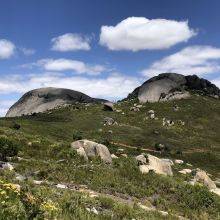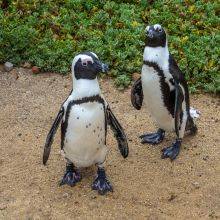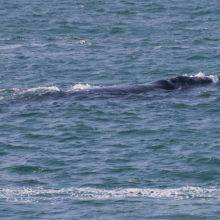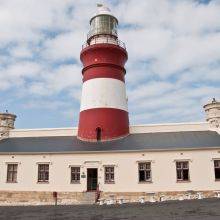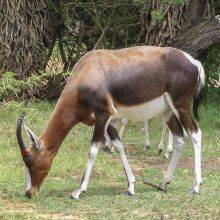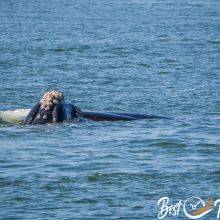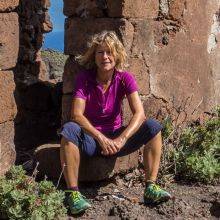When Is the Best Time
Safety is a primary concern for many travellers to South Africa. Having visited Cape Town and the Johannesburg area over ten times, our latest journey in July 2023 took us from Cape Town to Knysna. The cost of living here is quite affordable compared to Europe, allowing frequent dining out and shopping.

Yet, first-timers to this stunning country should consider several important factors to ensure a delightful stay amidst the brightest and most beautiful landscapes.
1 How about safety in South Africa? Safety Precautions

While Cape Town and the Garden Route feel safer than Johannesburg or Joburg, following safety rules is key. Be cautious and watch your surroundings. We never experienced any danger in South Africa. National Parks and Nature Reserves, where an entrance fee has to be paid, are pretty safe. However, most people are lovely always with a smile on their face.

- Avoid driving at night, keep your vehicle locked, and don't leave valuables inside.
- Choose accommodations away from townships.
- Do not carry your valuables or expensive cameras visibly on you. Tourist hot spots like the Waterfront in Cape Town or souvenir markets can be targeted for pickpocketing.
- Withdraw money at an ATM inside the airport after your arrival.
- We always keep our doors locked and windows closed at traffic lights and urban areas.
- Local emergency numbers: 10111 is for the police, and 10177 is for an ambulance.
2 What is Load Shedding?

South Africa's energy crisis has led to scheduled power outages known as load shedding. It's crucial to know the daily timings, which can vary across eight stages, causing 2-4 hour cuts multiple times daily. Many tourist accommodations, however, have backup power solutions.
Load Shedding: To manage during outages, we use the Eskom app for updates. Plan your battery charges and avoid parking in garages with electric doors, as we learned before a whale-watching trip in Hermanus. The power was turned off at a time other than mentioned, and we couldn't open the garage where our rental car was parked. It was a real hassle to get to our whale tour on time.

Carry a headlamp (my Petzl by Amazon) and know the location of your torch for evenings during the winter months when it gets dark early.
Stay informed about power outages by downloading the Eskom app for Android or Apple.
3 Is it Safe to Drink Tap Water in South Africa? Water Quality

Chlorinated tap water is reportedly safe in urban areas, but for peace of mind and to avoid gastrointestinal issues, we recommend bottled water, which is readily available.
When taking a shower, you smell the chlorine. It is reported that it is safe to drink chlorinated tap water in urban areas, but I do not recommend drinking this water and do not use it in the kettle to prepare coffee or tea. Instead, you can get 5 litres of bottled water in the supermarkets. Another reason you should buy bottled water is bacteria, which can cause gastrointestinal issues. However, some accommodations have their own borehole water, but even this, I always boil first before I consume it. Don't spoil your vacation – always buy water bottles.
Accommodation Tips South Africa

It doesn't matter if you are seeking luxury or budget accommodations; South Africa offers a wide range of all. Self-catering cottages are very popular; however, you will usually dine out because of the lower prices and exceptional quality compared to many other countries in Europe or North America. South Africa is known for its hostility and excellent service. Plenty of lodges and guesthouses are located in stunning locations offering breathtaking coastal views or situated in the beauty of the wild bush. Here are some of our and our friends (Marc and Andrea) favourite accommodations in South Africa:
Watercolours Studios in Simon's Town (penguins)

Recently, my friends Marc and Andrea visited Boulders Beach, and they showed me pictures from their exceptional studio and the property of the Watercolours Studios. The owners walk an extra mile, and the pool and garden are magnificent.

The breakfast is delicious and a great start to your day. The location is perfect for an early or late visit to Boulders Beach, just 3 km south of the penguins.
Villa Lion View in Constantia (wineries)

Beautiful views, excellent service and only a nine km drive to the Kirstenbosch Botanical Garden. This is the ideal gateway close to wineries and outstanding restaurants in Constantia, Franschhoek and Stellenbosch, outside of Cape Town, with views of Table Mountain. Villa Lion View feels like being in heaven.
Bo La Motte Farm Cottages in Franshoek

It is a superb, quiet location with views of the dam and mountains at sunset. The cottages have fully equipped kitchens, an outdoor seating area with barbecue, and electric blankets in your bed for the cold winter.
4 Is South Africa Left-Hand Traffic?

Retaining left-hand traffic, South Africa, a former member of the British Empire until 1961, shares this characteristic with many other nations once under British colonization. Most rental cars are automatic, which eases the transition, but extra caution is needed, especially when turning right or navigating roundabouts, which is clockwise. Turning right is a little tricky and requires more attention.
5 Potholes and Road Conditions

The N2 highway and Garden Route have improved and are much better than a decade ago. Driving with extra caution is crucial when travelling to villages and more remote areas. Potholes are frequent, even on tarred roads, and often not indicated by signs. This advice is based on a personal incident we experienced while driving from Johannesburg to the Ithala Game Reserve in the Eastern Cape. In a long right-hand curve, we failed to notice two potholes, resulting in both rims on the right side of our car getting damaged. Luckily, no more happened to us, and we were forced to wait for hours for a replacement rental car to arrive from Johannesburg airport. It's not unusual to see drivers navigating in a zigzag pattern to avoid potholes, especially in remote areas or regions like the Drakensberg.
Different Places in South Africa
6 Driving Rules and Overtaking Etiquette

You'll find highways in major cities like Cape Town and Johannesburg. Typically, these roads have one lane in each direction and occasionally a passing lane. A common driving practice facilitates overtaking: slower drivers often move to the far left, onto the shoulder, allowing faster vehicles to pass.

What's remarkable is the courtesy involved in this process. The driver who overtakes uses their hazard lights to say 'thank you,' and the overtaken driver responds with their high beams to say 'you're welcome.' This polite behaviour is crucial for smooth traffic flow.
However, it's essential to be cautious, especially since the road shoulders are often shared with pedestrians, especially near towns and villages, making overtaking more risky.

Speed is frequently monitored, with yellow speed traps and mobile checkpoints, especially in and around cities and major routes like the N2 on the Garden Route from Cape Town to Knysna.
Traffic control is prevalent, and my husband's driver's license was checked last time. Carry an international driver's license if your native language isn't English and your license isn't issued locally. Traffic checks are frequent, and respect for speed limits is essential.

Road construction areas often use flaggers instead of traffic lights to direct traffic. Four-way stops with stop signs are also common. At these intersections, the rule is 'first come, first served,' meaning the first vehicle to stop at the intersection has the right of way. This system can be particularly advantageous during load-shedding periods when traffic lights are out of power.
7 Summer and Winter Season

- African Winter
For vacationers from the northern hemisphere, the seasons are vice versa. The African winter from June to August is the coldest time, and snow can occur on Table Mountain. - African Summer
Therefore, South Africa in our winter from November to mid-March (I am from Europe) is an excellent destination to experience warm summer temperatures and a blue sky if you travel to Cape Town and the Western Cape.
8 Best Time to Travel to South Africa

To experience Cape Town at its finest, consider planning your visit during the summer months. This time, from November to mid-March, is renowned for its dry weather and pleasant temperatures. However, be mindful that December brings stronger winds. The optimal weather conditions are typically found in January and February, making these months ideal for exploring Cape Town and the broader Western Cape.
The Western Cape experiences most of its annual rainfall from July to September, and flowers bloom in August and September. Nevertheless, September is my favourite month along the Garden Route to spot migrating southern right whales.

In Johannesburg and the Eastern Cape, the climate is different. The summer months in areas like the Kruger National Park are marked by heat, heavy rains, and potential floods. To enjoy these regions, spring through fall, from April-May and September-October, are my preferred months to avoid the peak rainy season and the colder winter.

The winter in Limpopo and Mpumalanga is dry and cold, especially from June to August, due to their location on high elevations. Johannesburg has an elevation of about 1,700 m/ 5,700 ft. While heating is not standard in all accommodations, some more upscale game reserves might offer fireplaces, and a few places might equip their beds with heated blankets or hotties.
9 Is the Sun Stronger in South Africa?

In South Africa, the sun's intensity is profound, often reaching a UV index of 12, the maximum on the scale, during clear days. By contrast, the peak UV index in Northern Europe typically only goes up to 6 during the summer months. Without adequate protection, such as high-SPF sunscreen, a wide-brimmed hat, and clothing that covers the arms, you could suffer sunburn in as little as 10 minutes when the sun is at its zenith. I highly recommend investing in protective clothing.
The sunscreen that has become essential to me on these journeys is my special SPF 50+ sunscreen for exposed areas like my arms and face. I have never gotten sunburnt since I started using this cream.
Thanks for ordering your sunscreen at Amazon via my website. With your support, I can run this travel website for free.
10 Is there Malaria in South Africa?
The Western Cape is renowned for being malaria-free, while the Eastern Cape presents a marginal risk of malaria, especially during and just after the summer and autumn rainy seasons. Although Addo Elephant National Park is also declared malaria-free, taking mosquito precautions from October to April—when mosquitoes are most active at dusk and dawn—is wise.
In Limpopo and Mpumalanga, where Kruger National Park is located, the malaria risk escalates with the rains and persists into the early dry season. Protective measures, such as wearing long-sleeved shirts and trousers during these times, are strongly advised.

Health authorities recommend antimalarial drugs during periods of high risk and even outside these times. I personally opt to keep a standby treatment on hand. In the past, I took preventive antimalarials in regions like Kruger National Park, but now I prefer to prevent bites with specialized clothing from Craighoppers and an effective repellent. I try to avoid medications due to their potential side effects.
11 Tipping in South Africa

Tipping is significant for the service industry workers in South Africa. Many rely on tips to supplement their often modest wages. Tipping can make a substantial difference in their standard of living. However, it's also generally understood that tips are earned for good service, not just given as a matter of course. Here's an overview of how much you should consider for excellent service.

- Restaurants: Tipping waitstaff around 10-15% of the bill for good service is customary.
- Taxis and Rideshares: For taxi drivers or rideshare services like Uber, rounding up the fare or tipping up to 10% is standard.
- Tour Guides and Game Rangers: Tipping is highly appreciated for guided tours or safaris. The recommended amount can vary; it's often suggested to tip between R100 and R200.
- Hotel Staff: Porters usually receive around R10 to R20 per piece of luggage. For housekeeping staff, a tip of R50 to R100 for a stay is recommended, and it's best left in an envelope marked 'Thank you' on the bed. I prefer to give tips during my stay to ensusre the staff gets my appreciation.
- Parking Attendants and Petrol Station Workers: In South Africa, it's common to have your petrol pumped for you and your windshield cleaned at petrol stations. This is a highly appreciated service often done by several workers, women, too. You also get assisted by car guards in parking lots, which is sometimes annoying, but it's their only chance for a job. Small tips, usually around R5 to R10, are the norm for these services.
- Hairdressers and Beauty Services: A 10-15% tip is also customary in salons and spas for good service.
Top Tip: There are ATMs at the airport where you can withdraw money directly. It's a secure environment, and you can tip those who rely on these gratuities for their livelihood already when you leave the airport..
12 Farmstalls

Don't miss out on farmstalls in South Africa, especially along the N2, for homemade treats and local delicacies like rusks—perfect for long trips.
Farmstalls, also known as "padstalls" in Afrikaans, meaning "road stalls", are a beloved feature of the South African roadside, offering travellers a great place to rest and eat well. These charming stalls are often family-run and provide a window into the agricultural and culinary traditions of the region you're passing through. Farmstalls offer an array of homemade foods that include:

- Traditional South African biltong (dried meat) and droëwors (dried sausage).
- Freshly baked delicacies such as pies, bread, pastries, and rusks.
- Locally harvested fruits and vegetables, depending on the season.
- Homemade jams and chutneys, often made with local ingredients.
- Delicious home-cooked meals, from hearty stews to fresh salads, are also available for takeaway and freezing.
- Some sell handicrafts and souvenirs by local artisans.
- Natural products like honey, essential oils, and handmade soaps

Stopping at a farmstall is what we love, and we always do. They are a great place to stretch your legs and have a meal or dessert, coffee, and a way to experience local flavours and hospitality. Additionally, purchasing from these stalls supports the local economy and can give you insight into the community's way of life. It is an authentic experience, a chance to mingle with locals, and a great way to collect unique souvenirs.
Farmstalls are a part of the South African road trip experience.

With these insights, your journey through South Africa is hopefully safe, enjoyable, and unforgettable. Have a wonderful time in this fascinating country.
Best Months to Visit
Location and Tips

I can assure you, that once you visit South Africa, you'll be drawn back. Our first journey there was to Cape Town in January 2005. I met a traveller at the airport on her tenth visit to South Africa. She gave me some tips. Initially, I thought visiting that many times seemed implausible. However, now I find myself having returned to this magnificent country numerous times as well.
Afterword
If you like the article, I would be happy if you shared it with friends and on social media. If you want to support me, subscribe to our YouTube Channel, and you may find some ideas for your next vacation.
If you wish to use any of my photos, contact me, but I will take action against picture theft!! Why do I write this here? Hundreds of my pictures are used worldwide without any credit, nor did they get my permission. I don’t mind giving permission, but I want to get asked for it and to be mentioned. The world wide web changed a lot, and rewriting honest travel content with AI is the new business for many fake travel websites. Do you wish to know more about this topic and how to unmask such websites quickly? Read my article “The Truth About Fake Travel Websites and Picture Theft.”
Does honest travel content from real experiences has a future? I don't know any longer.

















